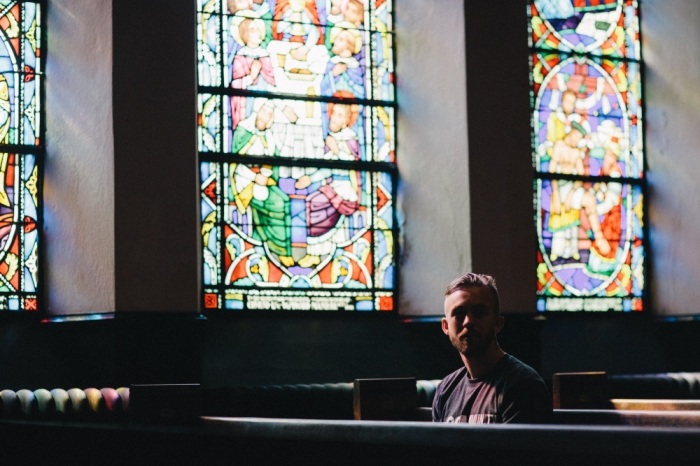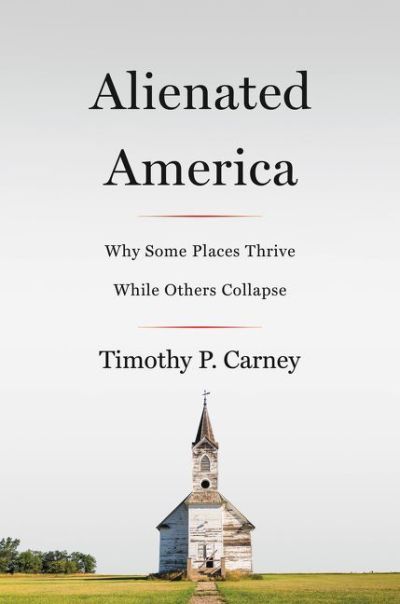Trump support points to collapse of churches, civic institutions, author Tim Carney says

A collapse of churches and other civic institutions led to communities alienated from the American success story, a problem that the election of Donald Trump highlighted, Tim Carney argues in a new book.
The places that gave the strongest support to candidate Donald Trump during the 2016 presidential primaries had one thing in common, a decline in social capital, Carney observes in Alienated America: Why Some Places Thrive While Others Collapse.
In an email interview with The Christian Post, Carney, editor at the Washington Examiner and visiting fellow at the American Enterprise Institute, talks about the importance of churches to these alienated communities, and the racism and xenophobia associated with the rise of Trumpism.
The book isn't about Trump, Carney writes, but Trump voters.
"The story of Election 2016, the story of the working class struggle in America, the story of rising suicides and crumbling families, and the story of growing inequality and falling economic mobility, is properly understood as the story of the dissolution of civil society," Carney wrote in chapter 1.
Alienated America adds to a number of other books and reports on the struggles of white working-class Americans, such as Charles Murray'sComing Apart: The State of White America, 1960-2010 (2012), Robert Putnam'sOur Kids: The American Dream in Crisis (2015), J.D. Vance's Hillbilly Elegy: A Memoir of a Family and Culture in Crisis (2016), Arlie Russell Hochschild's Strangers in Their Own Land: Anger and Mourning on the American Right (2018), and a 2017 Princeton study on a surge in "deaths of despair" among middle-aged whites.
What separates Carney's contribution from these others is his emphasis on the role of churches.
"The woes of the white working class are best understood not by looking at the idled factories but by looking at the empty churches," Carney writes in chapter 7, "It's about Church: America's Indispensable Institution."
In this interview, Carney talks more about the role churches can play in the recovery of alienated communities in America.
Here is the full, unedited transcript of the interview:
CP: You write that this isn't a book about Trump, but Trump voters. If Trump hadn't won, would we still be talking about those voters?

Carney: Yes. Trump's ability to immediately rise to the top of the polls in 2015 revealed a deep dissatisfaction in America that so many of us missed. In Alienated America, I look at Trump support in the early primaries and use that as an indicator of alienation. The alienation was there before Trump, and it would be there if he had faded away.
CP: You downplay the notion that Trump's popularity is driven by racism and xenophobia. But we have seen a resurgence of white nationalism. And some recent polls show some racist and anti-immigrant attitudes among Trump's base. So how do you think racism and xenophobia intersect with the social disintegration you're describing?
Carney: Racism and xenophobia, in both their common instances and their extreme occurrences, is directly tied up with alienation.
If you control for income and education, Trump did better in places with more immigrants. I consider this in light of Robert Putnam's findings that diversity erodes social cohesion. If your neighbors speak a different language, and have different norms and customs, that is a barrier to forming the meaningful bonds that constitute a community. So there are plenty of alienated people who see immigration as a negative force in their life.
I also think white nationalism and similar extremism has its roots in alienation. Humans need to belong to something. For so much of us, our identity helps us belong. I have my roots in New York, my Irish ethnicity, my Catholicism, my alma mater, my membership in the world of journalism, and conservatism, plus the very local, human connections. Among alienated white men, many of whom lack religion and come from places without strong senses of community, they seek to belong to something, but nothing is there. But they know they're white and they know they're American. So white nationalism follows.
CP: Why are churches so important to the story you're telling in Alienated America?
Carney: Because churches are the central institution of civil society in America and always have been. They are the primary way Americans have connected to their neighbors, found a safety net, found a sense of purpose, and found the modeling and camaraderie we all need. This is especially true in the middle class and working class. In our secularizing country, the elites have many other institutions they can turn to — alumni associations, white-collar workplaces, country clubs, strong public schools, and so on. The middle and working class, if you take away the churches, have only alienation.
CP: What can the Church (as in universal or at the denominational level) do to help these struggling communities that have been unable to financially sustain local churches?
Carney: Well first of all, many congregations die off not because of some exogenous financial woe, but because they cannot keep members. My particular advice on that front is that if you build your church around the two commandments Christ emphasized — loving God and loving your neighbor — your congregation may grow. We are fallen creatures, and the Church needs to provide worldly goods to bring people in the door. Help the congregants by being a central hub of civil society, but also help the congregants by being their outlet for serving their fellow man.




























